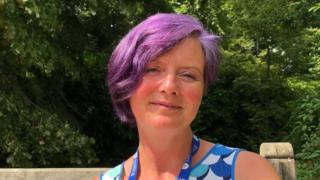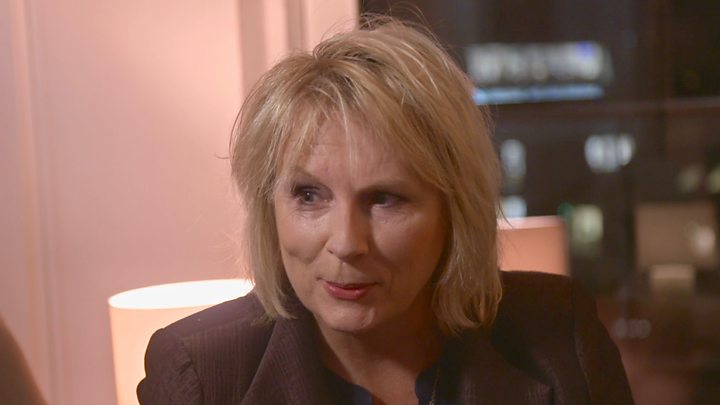Say ‘menopause’ three times a day, academics urged

Male and female university staff are being encouraged to say the word “menopause” three times a day to help remove the taboo and normalise it.
Dr Andrea Davies from the University of Leicester also wants women to be able to confidently announce in a meeting when they are having a hot flush.
Last year the university became the first in the UK to introduce its own menopause policy.
Dr Davies said there is a lot of ignorance about the topic.
She started researching the menopause five years ago and only realised she had experienced some of the early symptoms because of her work.
‘The M word’
“One of the things that we’ve been trying out is to try and say ‘menopause’ three times a day,” the associate professor of marketing and consumption said.
“You feel a bit tentative the first couple of times but now people talk about menopause quite easily in conversation.
“So just try it. Not ‘the M word’, it has to be full ‘menopause’. Say ‘menopause’ three times a day and start breaking down the taboo and the barriers.”
What is menopause?
- Menopause is the biological stage in a woman’s life that occurs when she stops menstruating
- Perimenopause is the time leading up to menopause when a woman may experience irregular periods or other menopausal symptoms. This can be years before menopause
- Postmenopause is the time after menopause has occurred, starting when a woman has not had a period for 12 consecutive months
- Menopausal symptoms affect 75% of women, meaning not all will need help or support
- Symptoms can include hot flushes, poor concentration, headaches, panic attacks, heavy or light periods, anxiety, loss of confidence and difficulty sleeping

Media playback is unsupported on your device
Dr Davies is co-author of a 2017 Department of Education report on menopause transition and economic participation.
She started experiencing menopausal symptoms when she was 42, but did not recognise them at the time.
“I thought it was something that happened much later on,” said Dr Davies, who is now 48.
“So it was a bit of a revelation to find out the average age of achieving menopause – when your periods have stopped for 12 months – is 51.
“I suddenly realised that those sleepless, sweaty nights, when I thought I needed to change the duvet to a lower tog, were actually one of those early symptoms.”

Media playback is unsupported on your device
She said many women feel afraid of showing signs of menopause in the workplace.
“People are worried about being considered an hysterical old woman, or an old crone,” she said.
“What I’ve seen in the data and from anecdotal stories and some of my own interviews is women are leaving work because they feel embarrassed, undermined or unable to cope.”
She wants women to feel so comfortable they can say: “I’m having a hot flush everybody, just give me a moment.”
She added that workplaces can make “very small, reasonable adjustments” to make the transition easy.
Suggestions in the university’s menopause policy include giving women fans for their desks, flexible working to cope with a lack of sleep, and offering a quiet space at work to tackle poor concentration.
via Say ‘menopause’ three times a day, academics urged
